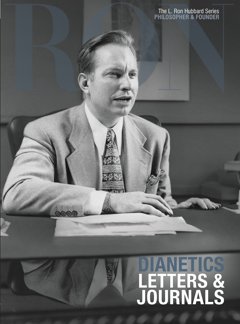Not known Facts About Dianetics
Not known Facts About Dianetics
Blog Article
Dianetics Can Be Fun For Everyone
Table of ContentsThe Best Strategy To Use For DianeticsThe 45-Second Trick For DianeticsFacts About Dianetics RevealedFascination About Dianetics
I couldn't ever before not intend to get anything that enters your mind for you- if it was otherwise, I wouldn't be sitting below with you, doing this. I not just might never ever have a trouble, or not intend to listen to something that comes to mind for you, yet I'm entirely excited to understand every concept, every thought, every photo or feeling that emerges or manifests for you- don't ever before believe or else, and if for one reason or another you do, please simply let me know! Often, you may have an idea, and image, idea or case appear that does not seem to answer the question, or associate with it, but nevertheless, constantly do inform me concerning it, and as we proceed, the significance will emerge for you.This is inherent in the basis of processing, and the subject of this conversation: the standard duties of the counselor and the customer: The fundamental duty of the therapist is, in contrast to "common training", not to control, which indicates to apply and/or prevent, however to instead function from the basis of EMPOWERING THE CLIENT.

Little Known Questions About Dianetics.
John Mcmasters revealed this basic fact incredibly well in among his lectures on Power handling, wherein he describes exactly how he was asked what this "unique propensity" was that he had for giving such wonderful sessions; he needed to consider that for a moment, and spotted that it was what he had not been doing, in addition to what he was doing: he wasn't examining, evaluating, computing, or actually, generating any ideas, let alone verbal expressions, after giving the command and while awaiting the computer to finish their solution to their contentment; he was, merely and only, existing with the PC, and entirely interested.
The role of the counselor, demonstrated; that was his "special propensity". I have had my very own experience which educated me this well, very beforehand in the game. In 1982, having actually lately completed my training and teaching fellowship on New Era Dianetics, I was running this on a PC, and there was a factor in the session where (being a little bit wet behind the ears not yet having many hours under my belt as a professional auditor) the computer seemed to be "taking also lengthy" to reveal anything verbally after I provided him a command.
This key transformed out to be one of the most beneficial contribution that John ever before made to the topic of treatment or auditing (Dianetics). In my simple viewpoint, it is the greatest contribution that any person has ever made to these subjectsthe application is totally non-judgemental, non-evaluative, and straight from the source empty of any idea, recommendations or opinion.no preconceived agenda for individuals, or 'degrees' that they must do
In Scientology we prided ourselves on not examining for individuals. All that actually indicated was that the auditor did not VERBALLY examine for the PC in session.
Dianetics - Questions

Any person that had actually ever seen John audit might not aid however observe a special quality in his bookkeeping."The client's fundamental function is to be there with the purpose of relocating in the direction of their spiritual objectives, and to freely and fully share and experience whatever materializes for them in addressing the concerns and implementing the guidelines in the processing.
This is something to procedure as needed. Likewise, people frequently have previous experience and/or indoctrination in auditing/processing which, in some means, and to some degrees, really deceives them right into perspectives, concepts and actions patterns that avoid the full awareness of these duties, and so they will certainly tend to inhibit the expressing of what comes to mind, as in the examples provided over - Dianetics. * The first, and possibly primary instances of mis-indoctrination bring about less than entirely smooth and reliable sessions, can be located in particular facets of the training routines, useful content or "TR's":"TR's" are commonly an individual's initial, or at the very least early, experience in Scientology, and while I will certainly take place to discuss what I see as the defects in concept and practice, nevertheless, often Bonuses tend to be greatly therapeutic, done as they are given (Hubbard urges that "TR's are not refining, they are educating", but factually, they are both handling AND training)
There is no "flunking", and no denial of the truth of this being processing. The focus, as it must be, is on experiencing the other individual's existence.
About Dianetics

Report this page